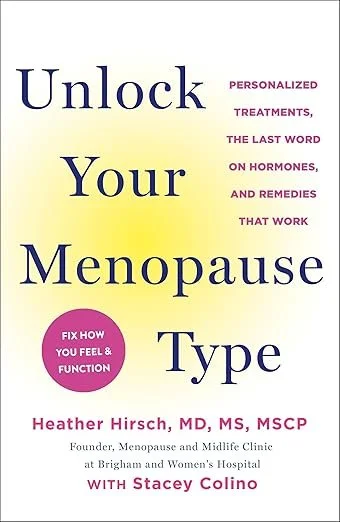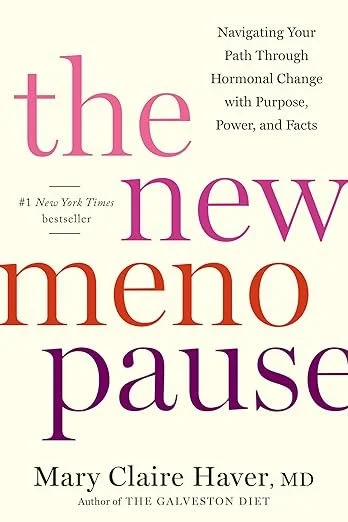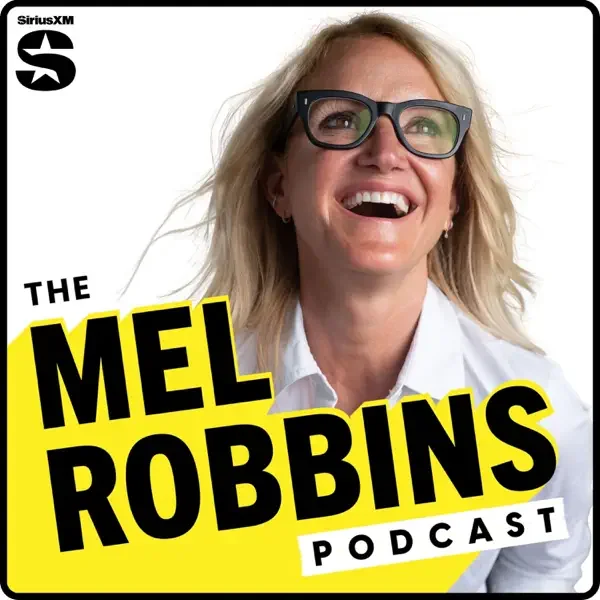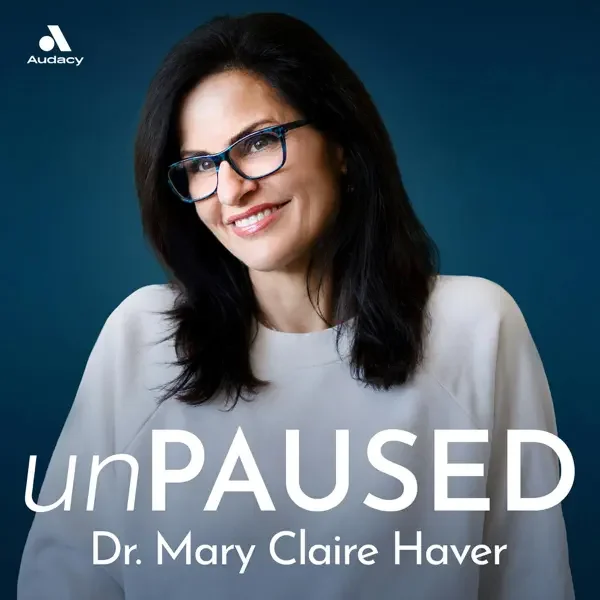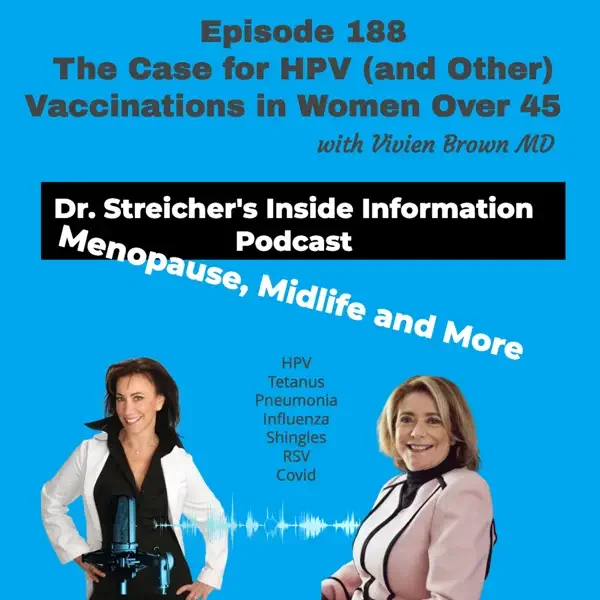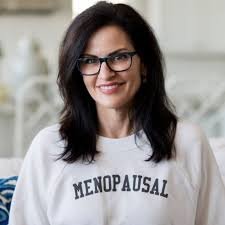
Menopause
Let us help you understand and manage your body as you navigate this transition into a new phase of life.
Consultations
Northside Women’s Health offers consultations to help patients understand the transition of menopause. Women will spend almost half of their lives in their peri or postmenopausal years. All women will enter this stage of life sometime between the ages of 45-55 and most will experience symptoms as well as health changes. Our providers can help you understand what’s normal and what options are available to help make this transition more manageable.
1. Please print and fill out this questionnaire:
2. Listen to the following podcasts:
The No.1 Menopause Doctor:
They’re Lying To You About Menopause!
Mary Claire Haver
Have you seen the new Menopause documentary?
Watch “The [M] Factor: Shredding the Silence on Menopause” — the first documentary film that addresses the marginalized or ignored health crisis faced by millions of women as they go through menopause.
Managing Menopause
FOUR LIFESTYLE COMPONENTS
DIET
- Limit fast food
- Consume 30 grams of protein at every meal
- Consume 25 grams of fiber per day
- Get personalized help with Nourish. They offer 1:1 nutrition counseling covered by insurance. Find a dietitian that's right for you and work together on achieving your goals.
PHYSICAL ACTIVITY
- Begin wherever you are now.
- Start slow.
- Find something you enjoy.
- Engage in weight-bearing exercises.
-Try an exercise app like Pelaton. They have thousands of classes including strength, meditation, yoga, stretching, cardio and more for a low monthly fee.
SLEEP
- Go to bed and wake up at the same time each day.
- Don’t drink anything right before bed.
- Create a restful routine, such as reading, taking warm shower or bath.
- Use relaxation techniques such as breathing exercises or meditation
- Try a sleep app (Pelaton, Calm or Stellar Sleep)
STRESS REDUCTION
- Identify the source of your stress.
- Prioritize time for yourself.
- Practice breathing exercises.
- Try some free mindfulness exercises
- Use the Calm app that offers a variety of tools to help with meditation, sleep, and stress management
Menopause Symptoms
“The prickly heat of hot flashes, the emotional ups and downs, and the menstrual cycle that comes and goes without a discernable pattern—you’ve heard about these common symptoms of perimenopause. But what about other symptoms such as the changes in your voice and body odor, or the metallic taste in your mouth? Are these part of menopause? Are they normal? Yes, they are.
Most women are familiar with several well-known symptoms of menopause, but there are several lesser-known, perfectly normal symptoms that can accompany this transition.
Treating both your common and uncommon menopause symptoms starts with good self-care practices. Additionally, discussing your symptoms with a menopause-trained healthcare provider and understanding which additional treatments are available to you will help you to find relief and feel your best.”
- From “Lesser-Known Menopause Symptoms and How to Treat Them” by Alloy, Medically Reviewed by Sharon Malone.
-
Hot Flashes
Mood Swings
Poor Quality Sleep
Vaginal Dryness
Hormonal Weight Gain
Menstruation Irregularity and Cessation
-
Fragile, Brittle Nails
Changes in Body Odor
Shaky Voice
Menopause Tingling Sensation
Less Full Breasts
Bigger Breasts
Sensitive, Painful Nipples
Cold Flashes
Hormonal Bloating
-
Heart Palpitations
Dry Mouth, Reduced Saliva, and Burning Mouth Syndrome
Metallic Taste in Mouth
Changes in Taste of Food and Drinks
Tooth Decay and Gum Disease
Altered Spatial Awareness
Menopause Nausea
Menopause Dizziness
Tinnitus
-
Diet and Exercise
Restful Sleep
Practicing Self Care
Menopause Hormone Therapy
Resources
BOOKS
Why Taking Hormones in Menopause Can Improve Women’s Well-Being and Lengthen Their Lives -- Without Raising the Risk of Breast Cancer
By Avrun Bluming, MD, and Carol Tavris, PhD
The Perimenopause Survival Guide
Make Sense of Your Symptoms and Build Your Personalized Treatment Plan
By Heather Hirsch, MD, MS, MSCP
Personalized Treatments, the Last Word on Hormones, and Remedies that Work
By Heather Hirsch MD MS NCMP and Stacey Colino
Navigating Your Path Through Hormonal Change with Purpose, Power, and Facts
By Mary Claire Haver, MD
PODCASTS
TESTOSTERONE for ALL?
with Kelly Casperson MD
Dr. Streicher’s Inside Information: THE Menopause Podcast
The No.1 Menopause Doctor:
They’re Lying To You About Menopause!
Mary Claire Haver
Mayo Clinic Cancer Doctor: 5 Foods That Heal the Body, Starve Cancer, & Prevent Disease
The Mel Robbins Podcast
Episode 270:
Progesterone and Perimenopause
Dr. Kelly Casperson
Episode 24:
Bone Health, Hormones and the Real Risk of Osteoporosis
Dr. Louise Newson
unPAUSED with Dr. Mary Claire Haver
Episode 228.
What is the deal with oral hormone therapy?
Health By Heather Hirsch
Episode 188.
The Case for HPV (and Other) Vaccinations in Women Over 45 with Vivien Brown
HDr. Streicher’s Inside Information: Menopause, Midlife, and More
Gynecologist
Educates on diet and supplements
Author of The Pause Life
The most comprehensive book about debunking the hormonal therapy myth
Physician and breast cancer survivor
Educates on perimenopause and postmenopause
Neuroscientist
Educates on how the brain changes during perimenopause and postmenopause
Orthopedic surgeon
Educates on musculoskeletal changes and how to start weight training during perimenopause and postmenopause
Physician
Educates on menopause and nutrition
Author of Your Menopause Type
Urologist
Educates on sexual and anatomical changes during perimenopause and postmenopause
Dr Louise Newson
Physician & Menopause Specialist,
No1 Best Selling Author
MOVIES
The M Factor Film: Shredding The Silence On Menopause!
“The [M] Factor: Shredding the Silence on Menopause,” a feature-length documentary film, centers on the lived experiences of women across the U.S. Cameras follow women into their doctors’ offices, at work, and in their homes to expose the challenges they face—including racial biases, gender-ignorant care, inequitable structures and systems, and barriers due to the lack of basic healthcare research. The women featured here open up about their experiences and share their stories of enduring debilitating symptoms while being ignored, ridiculed and/or shamed—and left untreated.
Now there’s a movement to fix the broken system, change the culture and transform our future. “The [M] Factor” turns the spotlight on the progress being made. With input from emboldened physicians, healthcare advocates and leaders in the menopause movement, the film focuses on what is being done to address this public health crisis and offers solutions that can be replicated in medical communities and workplaces across the country.
“The [M] Factor” gives women, their physicians and their advocates a voice and a chance to be seen, heard and respected.
Perimenopause
“Perimenopause is the hormonal rollercoaster that nobody warns you is coming…essentially your body's gradual transition toward menopause.”
-Amy B. Killen MD
-
Most women enter perimenopause in their mid-40s, but it can start anywhere from your late 30s to early 50s. The average duration is about 4 years, but it can last anywhere from a few months to a decade.
-
Hot flashes & night sweats
Sleep disruption: Insomnia, middle-of-the-night wakeups, or the delightful combo of being exhausted all day and wide awake at 3 AM.
Mood changes: Irritability, anxiety, and mood swings
Irregular periods: Shorter cycles, longer cycles, heavier flow, lighter flow
Vaginal dryness
Decreasing fertility: Though pregnancy is still possible! (Yes, you still need birth control.)
-
Brain fog: Forgetting, losing your train of thought, walking into a room without knowing why you're there.
Joint pain
Heart palpitations
Changing body composition
Reduced collagen production: More wrinkles and thinner skin
Hair changes: Thinning on your head, new growth in places you'd rather not have it.
Increased UTIs and yeast infections
-
Increase protein: Aim for 1 gram of protein per pound of ideal body weight daily.
Fiber is your friend: 25-30g daily to help manage those hormonal mood swings and keep your gut microbiome happy.
Phytoestrogens: Consider adding soy, flaxseeds, and legumes to your diet. These can help ease the estrogen rollercoaster.
Hydrate: Aim for at least 2-3 liters daily.
-
Daily Movement is medicine: 30+ minutes of something – anything – that gets your heart rate up (aim for zones 4 and 5 if you track such things).
Resistance training 3+ days/week: This is non-negotiable, ladies. Muscle mass decreases as estrogen drops, and strength training is your best defense. Plus, it helps with insulin sensitivity and bone density (which starts declining BEFORE periods stop).
Prioritize recovery: Add yoga, stretching, or mobility work to manage joint pain and stress.
-
Keep your bedroom cool (around 65°F/18°C)
Establish a consistent bedtime routine
Limit screen time before bed
Consider a cooling mattress pad if night sweats are disrupting your sleep
Go outside each morning for at least 10 minutes. It will help your circadian rhythms.
-
Excessive stress is like pouring gasoline on a hormone fire.
Find what works for you: meditation, breath work, nature walks, or maybe just setting better boundaries with people who drain your energy.
-
When lifestyle changes aren't cutting it, you can consider personalized hormone therapy.
Start with progesterone
Consider testosterone
Add estradiol as needed in late perimenopause
-
Red light therapy: Helps with skin collagen production and may reduce inflammation and stabilize blood glucose levels after eating.
Peptides: GHK-Cu for skin, BPC-157 for gut health and tissue repair, and Pineleon for sleep support.
Temperature-regulating mattress covers: Brands like Eight Sleep and Sleep.Me have great options for keeping your bed temperature just right.
Continuous glucose monitors: Helpful for managing the insulin resistance that can develop during this time.
Supplement nutritional support: HOP Box has 19 important ingredients (like creatine, essential fatty acids, and collagen peptides) within easy twice-daily packs.
“Your ovaries are starting to slow their production of estrogen and progesterone but in the most chaotic way possible. Imagine your hormones as enthusiastic but increasingly unreliable DJs – some months they're dropping sick beats, other months they're knocking over the equipment and setting the turntables on fire.
By combining lifestyle optimizations with strategic hormone support and innovative technologies, you can navigate this phase with grace and power and maybe even enjoy the journey.
Perimenopause might be challenging, but it's also an opportunity to reconnect with your body, reinvent your approach to health, and step into the next phase of your life stronger and more vibrant than ever before.”
Ovarian Aging & Onset of Menopause
Learn from Dr. Amy Killen about what our ovaries are, why aging ovaries create both infertility and long term health problems, and what you can potentially do to slow this process.





















